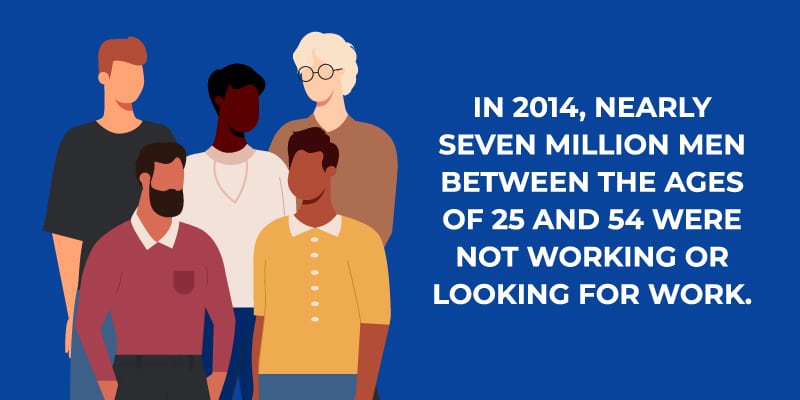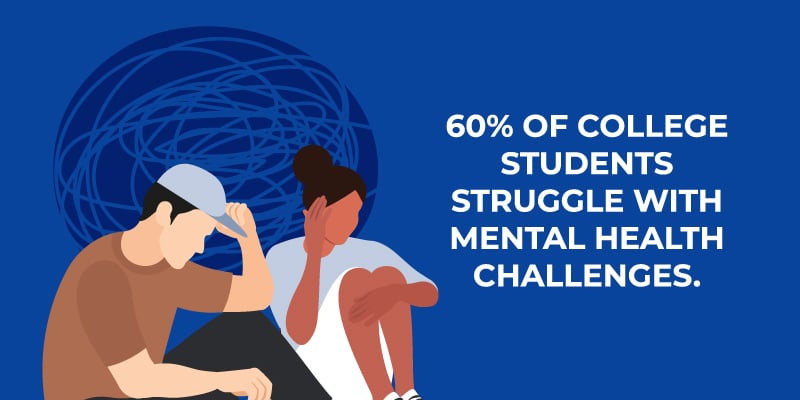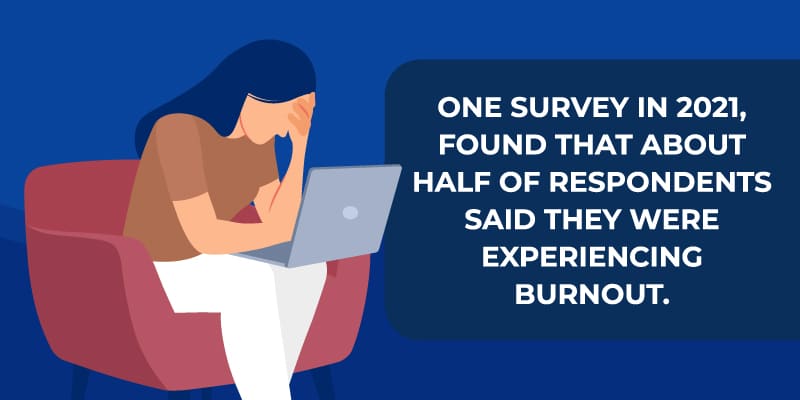
Failure to Launch
Struggling with failure to launch (FTL)? Read on to learn about symptoms, causes, and resources available to help young adults.
The information presented on this page is an overview of the average evaluation of failure to launch and is offered here as a resource. At J. Flowers Health Institute, our evaluations and treatment plans are customized and tailored to each individual’s needs. We specialize in providing a comprehensive team approach to your care. Our evaluations may include neuropsychological testing, a lifestyle assessment, and a medical evaluation for help diagnosing your symptoms to provide the holistic care you deserve.
If you would like to learn more about J. Flowers Health Institute, please do not hesitate to reach out.
Table of Contents
Introduction to Failure to Launch
Many social and economic factors can contribute to young Americans struggling to find their way when searching for a career and setting off to begin their adult lives. A possible cause for this social and economic independence is failure to launch.
If you think you or a loved one may be struggling with failure to launch, this article will provide all the details you need to know about symptoms, causes, and resources available that can help.
What is Failure to Launch (FTL)?
Failure to launch, though not an official diagnosis, is a psychological condition that prevents social and economic independence in adults. This condition is most prevalent in males aged 18 and over. However, women are also affected by the condition.1
In 2014, nearly seven million men between the ages of 25 and 54 were not working or looking for work. This is a common sign of failure to launch. This was an increase of 10% from statistics in 2004, and these numbers are still very high (or even higher) today.2
Potential Symptoms of Failure to Launch
Failure to launch is characterized by the following traits:
- Living with parents or guardians with no plans to move
- Financially dependent on family and friends
- Listlessness
- Unable to maintain or general disinterest in work or gaining income
- Emotional immaturity
- Entitlement
A comprehensive examination that includes psychiatric and psychological testing can pinpoint failure to launch issues. At J. Flowers Health Institute, we have programs available that can help with failure to launch and potential mental or behavioral health conditions that may be associated with it.

Similar Conditions to Failure to Launch
There are many other conditions or struggles similar to failure to launch. They may even be classified as a failure to launch condition, only phrased in other words. These can include:
Hikikomori in America
Notes About Hikikomori
Hikikomori is considered a sociocultural mental health condition, rather than a distinct disorder. Studies are seeking to find if there is a direct connection between Hikikomori and American psychology. Currently, the equivalent of Hikikomori in terms of American vernacular would be if someone is a recluse.
In recent years, being a recluse has affected many people in America. Specifically, due to rising concerns during the pandemic. One survey found that 49% percent of Americans worried about returning to normal life in 2021.3
This could have created an increased rise in many Americans struggling with symptoms of failure to launch.
Peter Pan Syndrome
Peter Pan Syndrome, named after the titular character, occurs when adults cling to childhood behavior and activities as a way to avoid adult life. This Peter Pan Syndrome can include dating younger partners, having a fear of commitment, and avoiding responsibility.
Peter Pan Syndrome can also be characterized by juvenile and nostalgic manners of dress. Unlike with failure to launch, people with Peter Pan Syndrome can lead a financially independent life, as the Peter Pan complex more prominently affects relationships and hobbies.
Notes About Peter Pan Syndrome
One study found that there was a strong correlation between individuals who struggled with Peter Pan Syndrome and a lack of bonding with parental figures in adolescence.4
Other potential causes can be:
- Parents not setting strong enough boundaries or consequences in childhood
- Overprotective or helicopter parents
- Parents who always rescue children from consequences or mistakes
- Abusive parents, leading to childhood trauma
Several of these causes can also relate to the development of failure to launch.
Refuse to Work Syndrome
How Does Burnout Contribute to Refuse to Work Syndrome?
Why Understanding the Cause of Failure to Launch is Important During Treatment
To provide patients with the correct treatment plan for failure to launch, it is essential to understand what aspects of their life are contributing to it. At J. Flowers Health Institute, we take a comprehensive diagnostic approach when working with patients showcasing signs of failure to launch.
At times, failure to launch can be due to poor cognitive function between the brain’s neurons. This can make it more difficult to process information or complete daily tasks. Mental health conditions, substance use disorders, past trauma, and a variety of other factors can also contribute.
Why is Failure to Launch Happening More Frequently?
Failure to launch often occurs due to the psychological side effects of several factors. Some of the most common causes of failure to launch are:
Economy
An unstable or poor economy can cause feelings of defeat and depression. Typically, a poor economy offers low working wages and a high cost of living. Because of this, a person may feel that the income isn’t worth the effort. People with failure to launch often internalize this sentiment.
The U.S. economy often causes a sense of defeat for many individuals. Students who finish college or graduate from high school often feel like they struggle to find meaningful employment. That is especially true for students who graduate with degrees from fields that are more competitive to get into.
Additionally, research shows that around 60% of college students struggle with mental health issues.7 Many students can find that leaving the structure of school worsens their symptoms post-graduation.
Types of Jobs
Debt
Fear of debt can also contribute to failure to launch. This most accurately applies to those afraid to take on a potentially staggering college debt. This can result in stalling by taking a series of dead-end or low-paying jobs.
It can be a contributing factor to failure to launch post-college for many younger people.
Falling Marriage Rates

How to Recognize Failure to Launch
Failure to launch becomes discernible only with the passage of time, often becoming evident through prolonged periods of unemployment or the extended continuation of residing in one’s childhood home, typically culminating at a certain age.
Stalling Leaving Home
There are many people without failure to launch who continue to live at home during their adult years. The difference between a person with failure to launch and others who simply live with others is a contribution to the financial share.
Lack of Motivation
Refusal to Participate in Life
In short, life can be overwhelming, especially for those diagnosed with anxiety or depression. This can mean that in addition to being financially co-dependent, this may also lead to avoiding social engagements, relationships, and other situations out of their comfort zone.
Those who refuse participation can think that it helps mitigate unpleasant mental health symptoms. However, it often contributes to social isolation and loneliness, which have a drastic impact on mental health, further worsening the failure to launch symptoms. Studies show that loneliness contributes to depression and anxiety in 63% of young adults.10
Avoidant Personality Disorder
Refusal to participate in life can also be caused by avoidant personality disorder. A person with this condition may feel severely uncomfortable in social situations or be overly concerned with how others perceive them.
Trouble Assimilating to College Life
Social Anxiety
Trouble assimilating can also be caused by general social anxieties. Many people with social anxiety often go undiagnosed and untreated. Social anxiety can cause low self-esteem and a fear of adult life.
Learning Difficulties
Learning difficulties, especially in an academic setting, can lead to failure to launch due to low self-esteem and a fear of how others will view their intelligence.
Students with learning disabilities also have a higher likelihood of dropping out of school compared to the average student. This can lead many students who struggle to learn to end up with failure to launch since they don’t know what their next steps should be.
Low Self-Esteem
Low self-esteem can cause a person to build social anxieties and fear of leaving their comfort zone. It also contributes to fears of failure. Frequently, if someone believes they can’t do something, then they often won’t even try.

How to Improve Failure to Launch
There are several strategies that can be taken to help with failure to launch. A good first step is contacting a treatment center, getting a full diagnosis, and beginning work with a therapeutic professional to discover the underlying causes.
When someone is struggling with failure to launch, it’s important to encourage them to take steps forward each step of the way. If you or someone you know is struggling, our staff at J. Flowers Health Institute has many resources that can help.
Here are some common steps that can help with failure to launch:
Build Self-Esteem
Low self-esteem and fear of failure can be the primary causes of failure to launch. Building self-esteem can be as simple as completing a small task or goal. For example, working out for a short while each day can help build small habits of success while also improving self-image.
Encourage Self-Reliance
Self-reliance is the major difference between those with failure to launch and others who live at home. Practicing self-reliance over time can make the transition out of a codependent lifestyle easier.
Many with failure to launch don’t move out of their parents’ home because of the lifestyle afforded at home. If even a little self-reliance is achieved, especially financially, then the need for the parent or guardian is lessened.
Putting plans to land and hold a job successfully into a treatment program can often be very beneficial for those with failure to launch.
Reduce Anxiety and Improve Mental Well-Being
We provide Comprehensive Diagnostic Evaluation Programs, Bespoke Stabilization Programs, Concierge Wellness and Restoration Programs, brain mapping, and more that can all benefit a patient’s mental health and well-being.

Treat Failure to Launch at J. Flowers Health Institute
If you think you or someone you know is struggling with failure to launch, J. Flowers Health Institute has the resources to help.
Upon beginning treatment, we’ll provide a full diagnosis and develop a comprehensive treatment plan that is tailored to your specific needs. We can help you set goals for treatment, create a plan for success, and work on any underlying conditions that may be contributing to failure to launch.
What Do We Offer?
J. Flowers Health Institute offers multiple avenues for treatment. Depending on your specific needs and any co-occurring disorders, we will create a personalized treatment plan for your needs. Our Living MRI can help look into any specific symptoms you may have.
Contact us today to learn more about getting started. We’re here to answer any additional questions you may have so that you can have the support and care you deserve every step of the way during recovery.
Resources
- https://www.ncbi.nlm.nih.gov/pmc/articles/PMC5504878/
- https://www.bls.gov/opub/btn/volume-4/people-who-are-not-in-the-labor-force-why-arent-they-working.htm
- https://www.apa.org/news/press/releases/stress/2021/sia-pandemic-report.pdf
- https://onlinelibrary.wiley.com/doi/full/10.1111/jpc.14615
- https://sloanreview.mit.edu/article/with-burnout-on-the-rise-what-can-companies-do-about-it/
- https://www.cnn.com/2022/02/01/economy/us-job-openings-quite-december/index.html
- https://www.apa.org/monitor/2022/10/mental-health-campus-care
- https://nrf.com/topics/economy/about-retail-jobs
- https://www.aplu.org/our-work/4-policy-and-advocacy/publicuvalues/student-debt/
- https://www.nsba.org/ASBJ/2019/April/Graduation-Rates-Students-Disabilities









